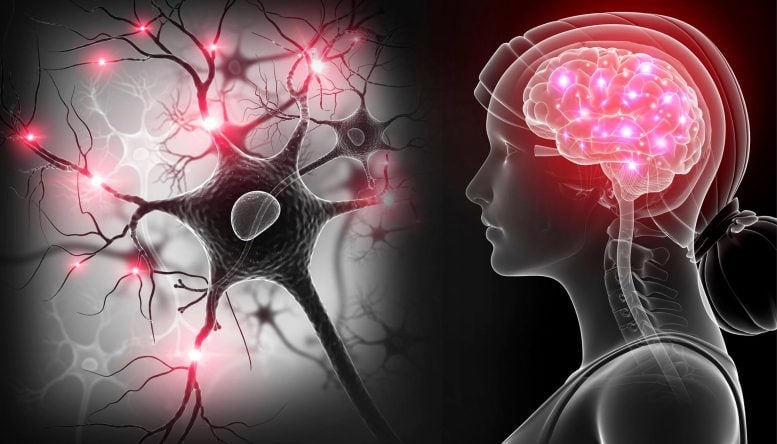
A study has found that antipsychotic medications given to patients with dementia are associated with a higher risk of serious health problems, such as stroke and pneumonia, particularly soon after starting treatment. This highlights the need for careful assessment and management of antipsychotic use in this vulnerable population.
Experts stress the need for increased caution in the early stages of treatment, as the risks are highest shortly after treatment begins.
A recently published study by The BMJ finds that the use of antipsychotics in people with dementia is linked to higher risks of many serious adverse effects, including stroke, blood clots, heart attack, heart failure, fractures, pneumonia and acute kidney injury, compared with non-use.
These findings show that the use of antipsychotics in people with dementia presents a considerably wider range of risks than regulatory warnings have previously recognised, with risks being highest shortly after treatment initiation, highlighting the need for increased caution in the early phases of treatment. Despite safety concerns, antipsychotics continue to be widely prescribed for behavioural and psychological symptoms of dementia such as apathy, depression, aggression, anxiety, irritability, delirium and psychosis.
Previous regulatory warnings when prescribing antipsychotics for these symptoms are based on evidence of increased risks of stroke and death, but evidence of other adverse effects is less conclusive in people with dementia.
To address this uncertainty, researchers set out to study the risks of several adverse events potentially associated with the use of antipsychotics in people with dementia. The adverse events studied included stroke, major blood clots (venous thromboembolism), heart attack (myocardial infarction), heart failure, irregular heartbeat (ventricular arrhythmia), fractures, pneumonia, and acute kidney injury.
Study design and methodology
Using linked primary care, hospital and mortality data from England, they identified 173,910 people (63% women) diagnosed with dementia at a mean age of 82 years between January 1998 and May 2018 who had not received an antipsychotic in the year before their diagnosis. Each of the 35,339 patients who had been prescribed an antipsychotic on or after their dementia diagnosis was then matched with up to 15 randomly selected patients who had not used antipsychotics.
Patients with a history of the specific outcome of interest prior to their diagnosis were excluded from analysis of this outcome. The most commonly prescribed antipsychotics were risperidone, quetiapine, haloperidol, and olanzapine, which together accounted for nearly 80% of all prescriptions.
Potentially influential factors, including patient characteristics, lifestyle, medical history, and prescribed medications, were also taken into account. Compared with nonuse, antipsychotic use was associated with increased risks for all outcomes except ventricular arrhythmia. For example, during the first three months of treatment, pneumonia rates among antipsychotic users were 4.48% versus 1.49% for nonusers. After one year, this rate increased to 10.41% for antipsychotic users versus 5.63% for nonusers.
The risks of acute renal failure (1.7-fold increased risk) and stroke and venous thromboembolism (1.6-fold increased risk) were also higher in antipsychotic users compared with nonusers. For almost all outcomes, risks were higher during the first week of antipsychotic treatment, particularly for pneumonia.
The researchers estimate that during the first six months of treatment, antipsychotic use could be associated with one additional case of pneumonia for every nine patients treated and one additional heart attack for every 167 patients treated. After two years, there could be one additional case of pneumonia for every 15 patients treated and one additional heart attack for every 254 patients treated.
Consequences of the study
This is an observational study, so it is not possible to draw definitive conclusions about cause and effect relationships. The researchers also cautioned against possible misclassification of antipsychotic use. And although they took into account a range of factors, they cannot rule out the possibility that other unmeasured variables may have affected their results.
However, this was a large analysis based on reliable health data, which looked at a wide range of adverse events and reported relative and absolute risks over multiple time periods.
Thus, the researchers say that antipsychotics are associated with a considerably wider range of serious adverse events than previously highlighted in regulatory alerts, with the highest risks emerging soon after treatment initiation, and are therefore of direct relevance to guideline developers, regulators, clinicians, patients and their carers.
Any potential benefits of antipsychotic treatment should be weighed against the risk of serious harm and treatment plans should be reviewed regularly, they add.
The results of this study will provide health professionals with more nuanced data to help guide personalized treatment decisions, U.S. researchers say in a related editorial.
They explain that international guidelines advise limiting use to adults with severe behavioral and psychological symptoms of dementia, but the rate of prescribing has increased in recent years, partly because of the relative scarcity of effective non-drug alternatives and the significant resources required to implement them.
“It is high time to place greater priority on more patient-centred care, personalised care plans, regular re-evaluation of management options and abandoning the overprescription of antipsychotics,” they conclude.
Reference: “Multiple adverse effects associated with antipsychotic use in people with dementia: population based matched cohort study” by Pearl LH Mok, Matthew J Carr, Bruce Guthrie, Daniel R Morales, Aziz Sheikh, Rachel A Elliott, Elizabeth M Camacho, Tjeerd van Staa, Anthony J Avery and Darren M Ashcroft, April 17, 2024, BMJ.
DOI: 10.1136/bmj-2023-076268
The study was funded by the National Institute of Health and Care Research (NIHR).